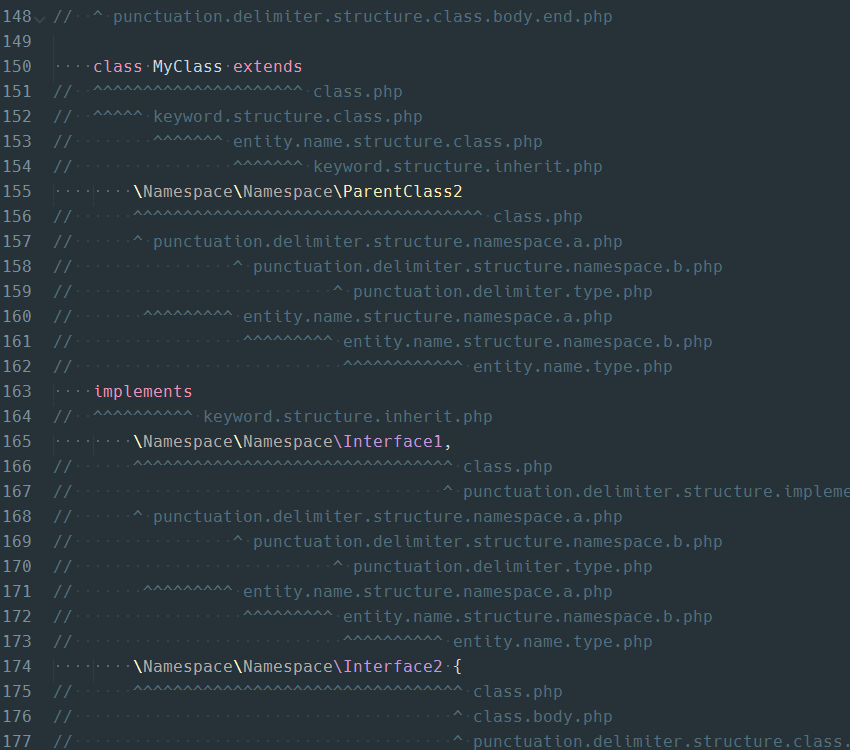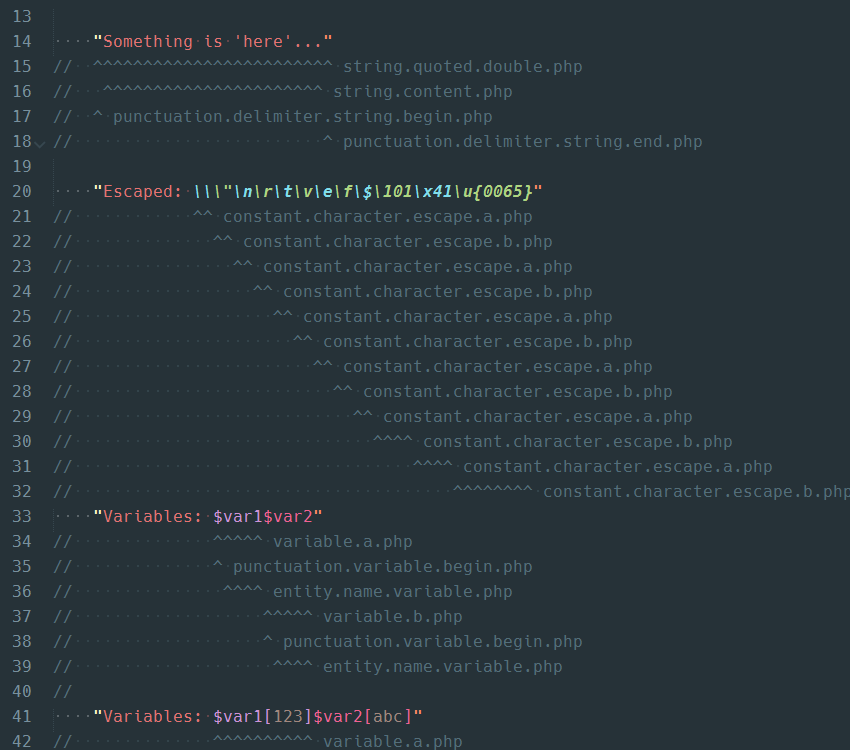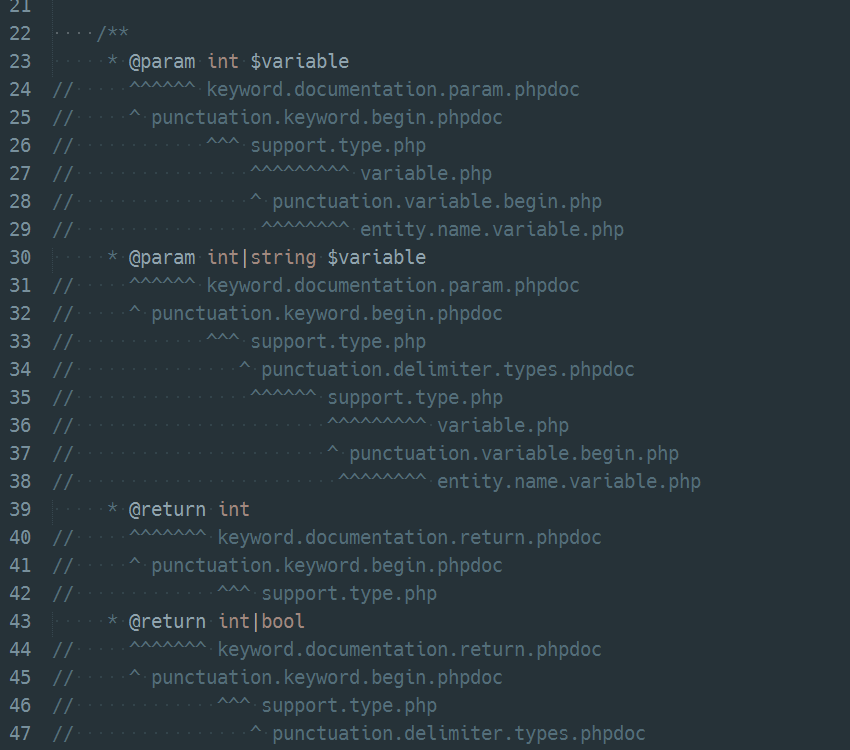Hi,
Is there a way to to pop the current context if a include matched anything?
For example, I have a context to match variables and types:
types:
- match: SomePattern
scope: type.example
variables:
- match: SomePattern
scope: variables.example
Those variables may appear free or as function parameters and the type before the variable is not required, so I assumed:
parameter:
- include: variables
pop: true
- include: types
The idea was that if it matched the variable, it would pop the current context as the type must never appear in front of it.
Is it possible to do something like this without having to rewrite the variables’ pattern over and over? The type and the variable may be in different lines, so a single pattern to match both would not work.
Thanks




